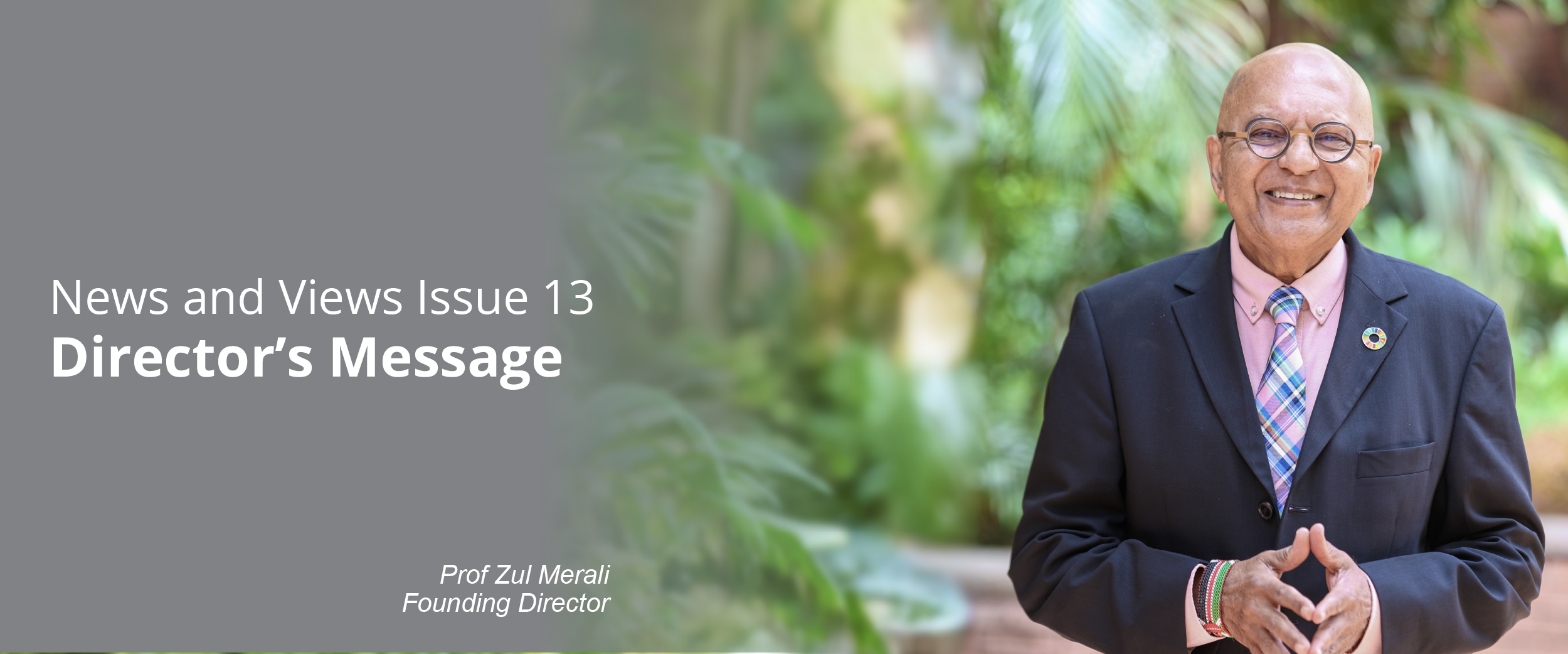 I am humbled to be appointed as one of the nine international leaders, to the World Dementia Council (WDC). The WDC, works to drive global progress on dementia. Its mission is to support and challenge the international community to advance treatments, risk reduction, awareness, and quality care. Building international collaboration, the Council provides thought leadership and advocates for dementia as a global priority. At the recent meeting, the deliberations focused on the new first-generation treatments for Alzheimer’s disease, and how to bring these drugs to the clinics in the global North. Furthermore, we discussed how the global community should address the additional challenges facing the global South in making such new treatments accessible to the low- and middle-income countries. Read more.

Amna’s journey into neuroscience and mental health research is one of curiosity, dedication and a deep commitment to bridging the gap between scientific discovery and real-world impact. As a Research Fellow at BMI, she works on translating research into meaningful interventions that improve mental health outcomes in communities. In this conversation, she shares her inspirations, most meaningful projects, and the crucial role of communication in advancing mental health awareness and care.
What sparked your interest in neuroscience, and how did you find your way into mental health research?
During one of my undergraduate summer breaks, my brother sent me a music video titled Ode to the Brain. It harmonized voices from TED Talks and speeches by renowned neuroscientists into a melody glorifying the brain—its synapses, evolution, and ability, as Vilayanur Ramachandran put it, to "contemplate the vastness of interstellar space" despite being "a mass of jelly that you can hold in the palm of your hand." That idea stuck with me. Read more.

In a historic ruling for mental health advocacy, Kenya’s High Court declared Section 226 of the Penal Code unconstitutional, effectively decriminalizing attempted suicide and embracing a compassionate approach to mental health challenges in the country.
For decades, attempted suicide in Kenya was treated as a criminal offense, punishable by up to two years in prison, a fine, or both. This punitive stance not only stigmatized individuals living with mental health crises but also discouraged them from seeking help. Read more. 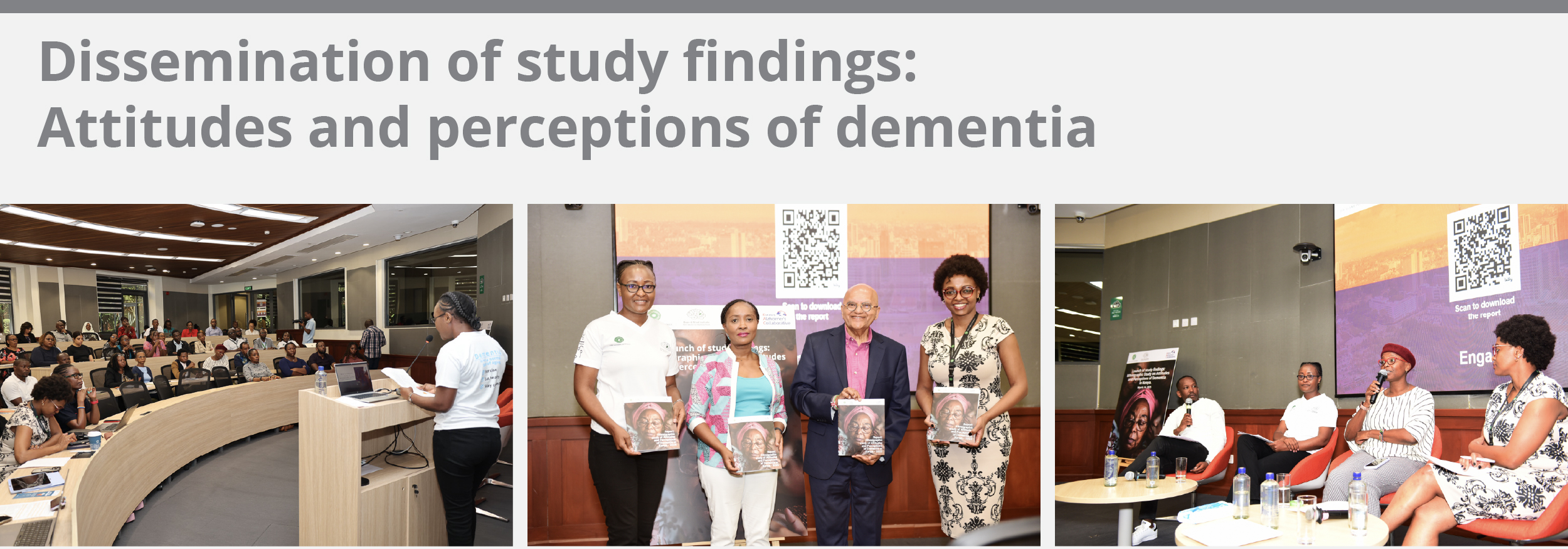
  
For many Kenyan families, dementia is a silent struggle; misunderstood, often ignored and wrapped in stigma. When a loved one starts forgetting names, getting lost in familiar places, or struggling to communicate, it is commonly dismissed as “just old age.” In some cases, cultural beliefs blame supernatural forces, delaying much-needed medical help. By the time families seek care, the disease has often progressed to an advanced stage.
A study by the BMI with support from the Davos Alzheimer’s Collaborative (DAC), sheds light on these challenges. Led by Dr Edna Bosire, the research explored perceptions of dementia among patients, caregivers, and health care providers at Aga Khan University Hospital, Nairobi, as well as within informalsettlements. Read more.
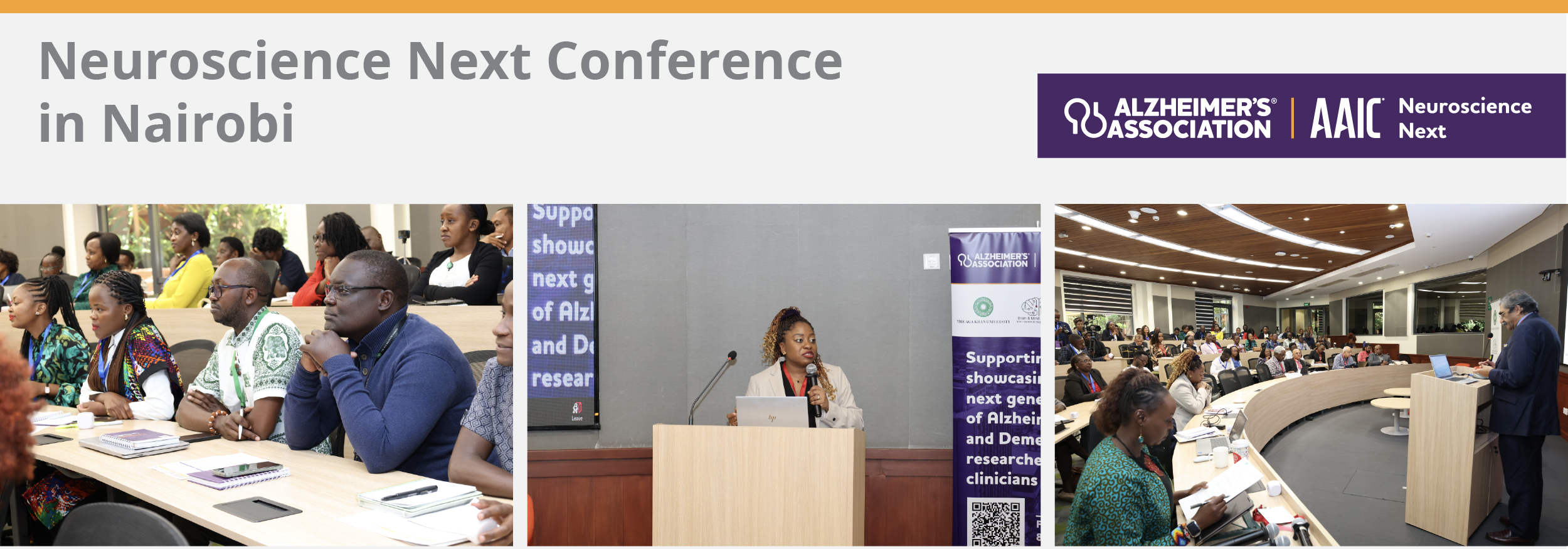
With over 75% of dementia cases in low- and middle-income countries going undiagnosed, Africa faces an urgent need for locally led research and culturally relevant interventions to address this growing public health crisis. In response, we hosted the Alzheimer’s Association International Conference (AAIC) Neuroscience Next Nairobi Hub ─ a transformative event marking Africa’s shift from a passive participant to an active leader in global dementia discourse. Read more.
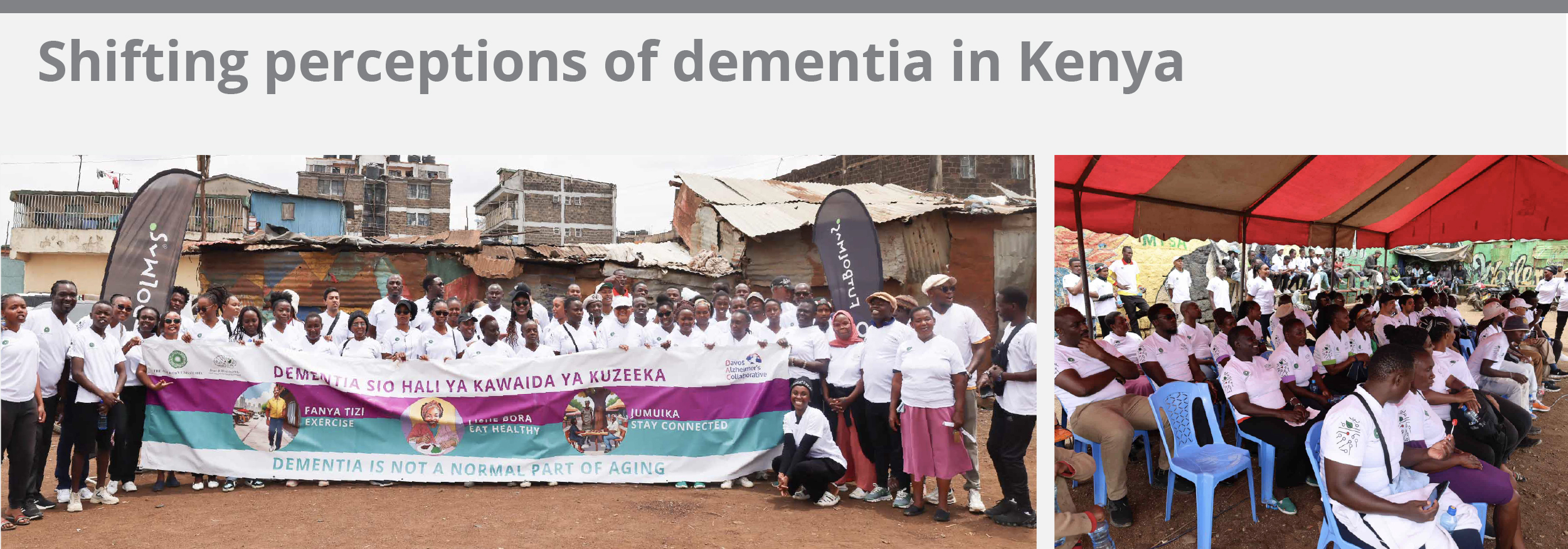 On March 12, 2024, in Mathare, a community gathering took on a critical topic, dementia. Misunderstood by many in Kenya, the condition is often seen as a curse or simply an unavoidable part of aging. This discussion aimed to challenge these misconceptions and bring clarity to a subject long shrouded in stigma. Read more. On March 12, 2024, in Mathare, a community gathering took on a critical topic, dementia. Misunderstood by many in Kenya, the condition is often seen as a curse or simply an unavoidable part of aging. This discussion aimed to challenge these misconceptions and bring clarity to a subject long shrouded in stigma. Read more.
 The African College of Neuropsychopharmacology (AfCNP) will host its School on Neuropsychopharmacology from June 1 to June 8, 2025, at the University Centre, Aga Khan University inNairobi, Kenya. The African College of Neuropsychopharmacology (AfCNP) will host its School on Neuropsychopharmacology from June 1 to June 8, 2025, at the University Centre, Aga Khan University inNairobi, Kenya.
Applications for the program recently closed, attracting early-career scientists, postgraduate students, and trainees in psychiatry, psychology, pharmacology, and neurosciences from across Africa. The intensive one-week course will feature lectures from distinguished international faculty and participant-led poster sessions, offering a well-rounded learning experience in neuropsychopharmacology. Read more.
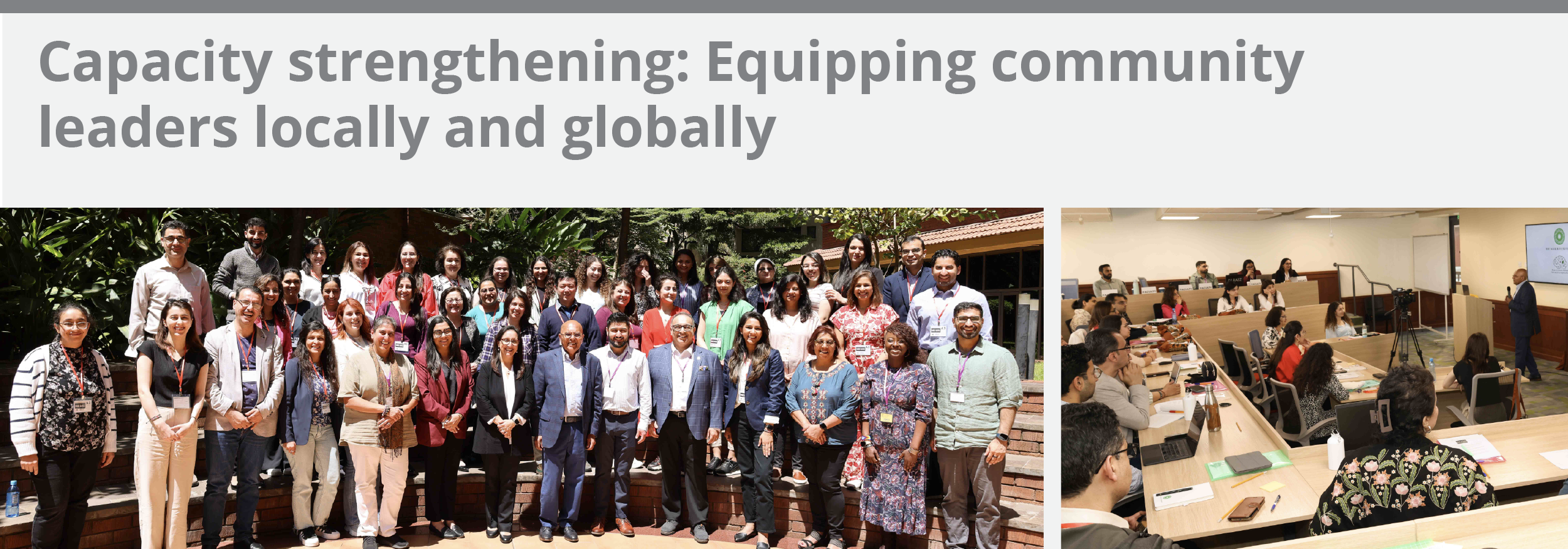 With mental health challenges on the rise, the need for early detection and community-driven support has never been more urgent. Religious and community leaders are often the first point of contact for individualsexperiencing distress, making their role in mental health care critical. Recognizing this, in collaboration with the Global Mental Health Resource Group we hosted the second Mental Health First Response Training of Trainers (ToT) programme from February 14 to February 19, 2025, equipping professionals with the knowledge and tools to provide culturally responsive, trauma-informed support in their communities. With mental health challenges on the rise, the need for early detection and community-driven support has never been more urgent. Religious and community leaders are often the first point of contact for individualsexperiencing distress, making their role in mental health care critical. Recognizing this, in collaboration with the Global Mental Health Resource Group we hosted the second Mental Health First Response Training of Trainers (ToT) programme from February 14 to February 19, 2025, equipping professionals with the knowledge and tools to provide culturally responsive, trauma-informed support in their communities.
The training brought together healthcare providers, educators, social workers and religious leaders each bringing unique perspectives to the shared mission of advancing mental health care. Through expert-led sessions, interactive discussions and practical exercises, participants gained the knowledge and confidence to identify signs of mental distress, respond effectively, and provide culturally sensitive care.
 BMI continues to push the boundaries of mental and brain health research. With a focus on East Africa and South and Central Asia, our work addresses critical issues across all stages of life in low- and middle-income countries (LMICs). BMI continues to push the boundaries of mental and brain health research. With a focus on East Africa and South and Central Asia, our work addresses critical issues across all stages of life in low- and middle-income countries (LMICs).
We have recently updated our research projects, reflecting our ongoing commitment to developing impactful interventions and advancing understanding in the field. Explore our key strategic areas of focus and latest projects on our website here.
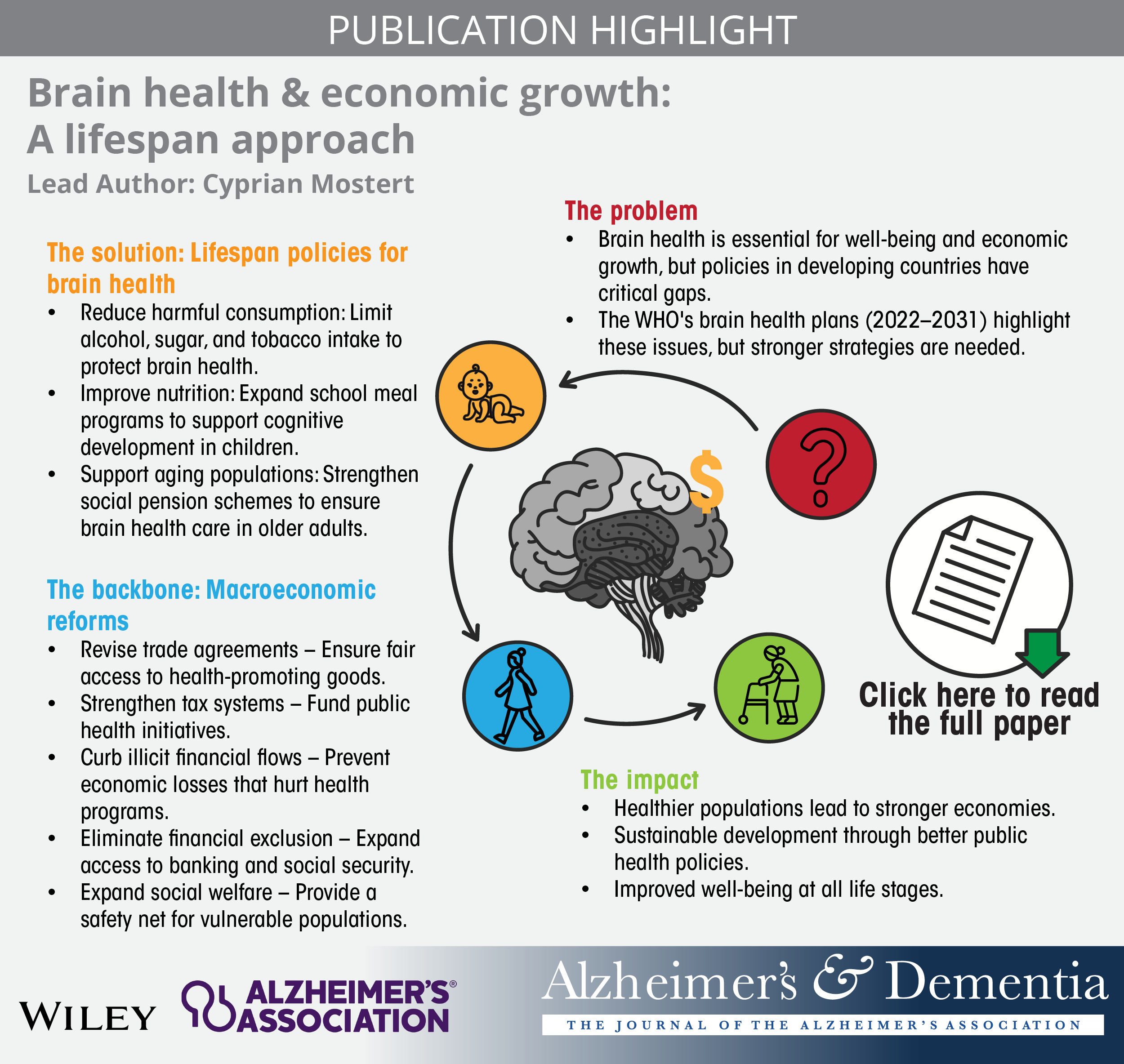
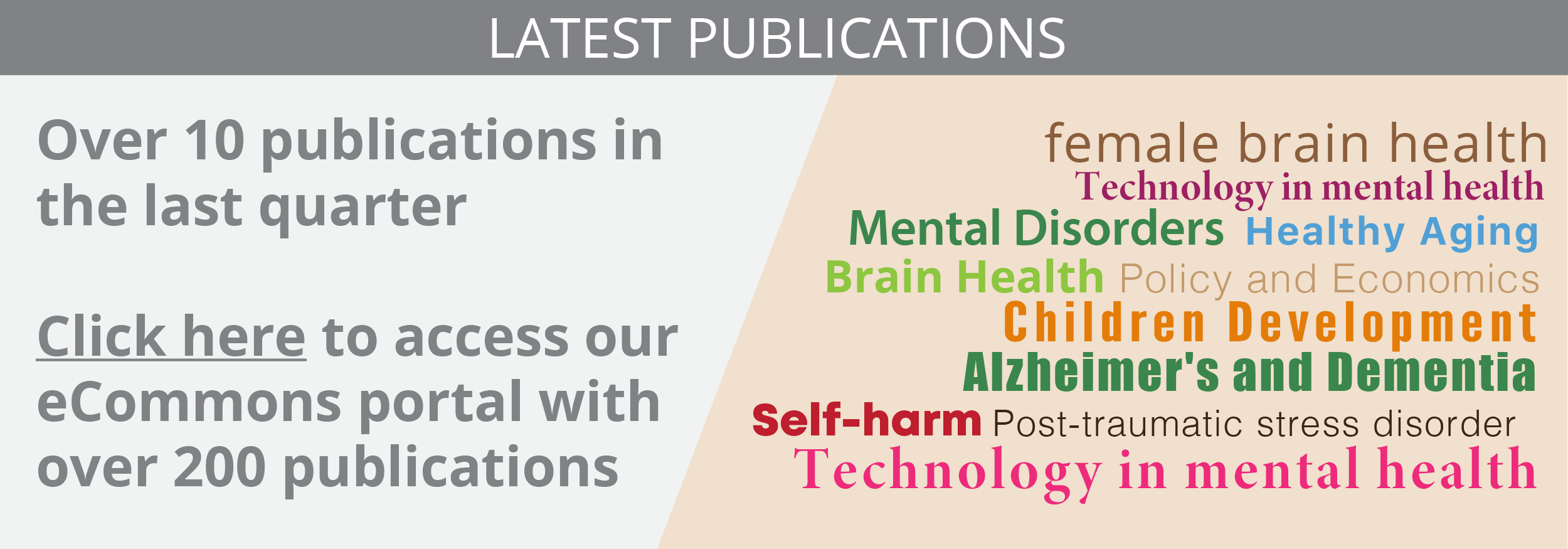
Authors: Andrew Aballa, Anne Njogu, Chinedu Udeh-Momoh, Cynthia Smith, Cyprian Mostert, David Andai, Edna Bosire, Everline Onchari, Gloria Chemutai, Jasmit Shah, Karen Blackmon, Kendi Muchungi, Linda Khakali, Lukoye Atwoli, Lucy Kamau, Mary Karanja, Murad Khan, Olivera Nesic-Taylor, Rachel Maina, Thomas Thesen, Willie Njoroge, Zul Merali .
Journals: Scientific Reports, Alzheimer’s & Dementia, Psychiatry Research, Nutrition Bulletin, PLOS One, BMC Psychiatry, Journal of Alzheimer’s Disease, BMC Cardiovascular Disorders
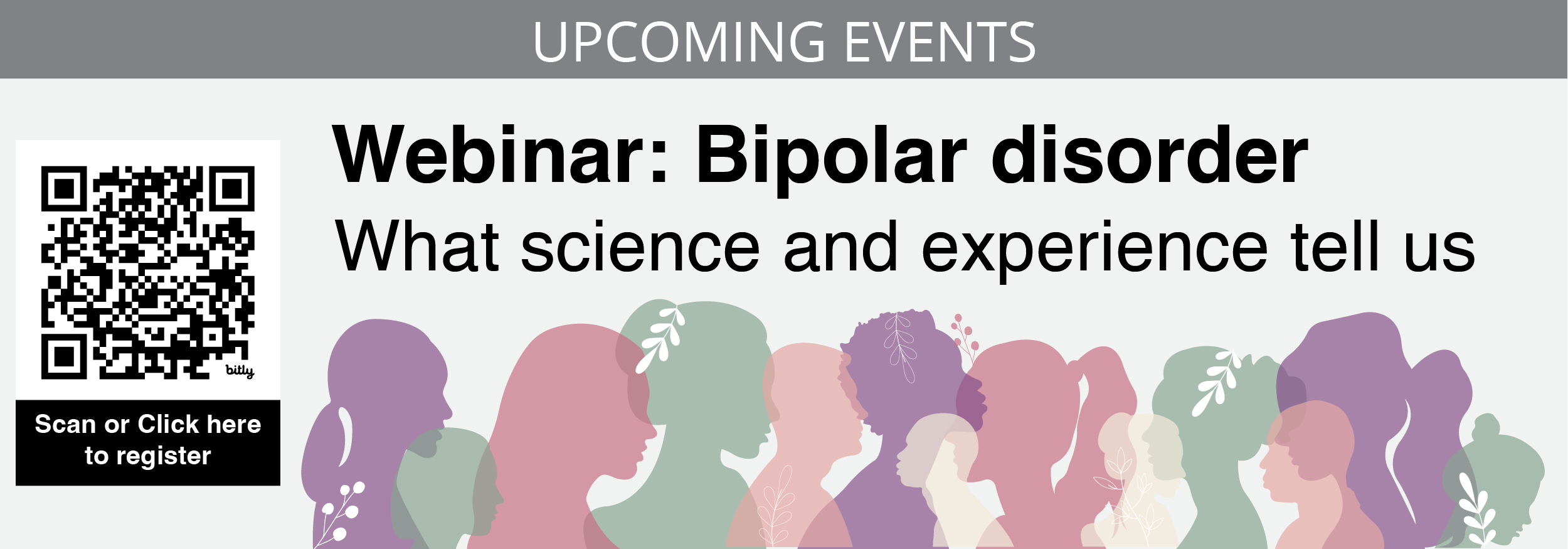

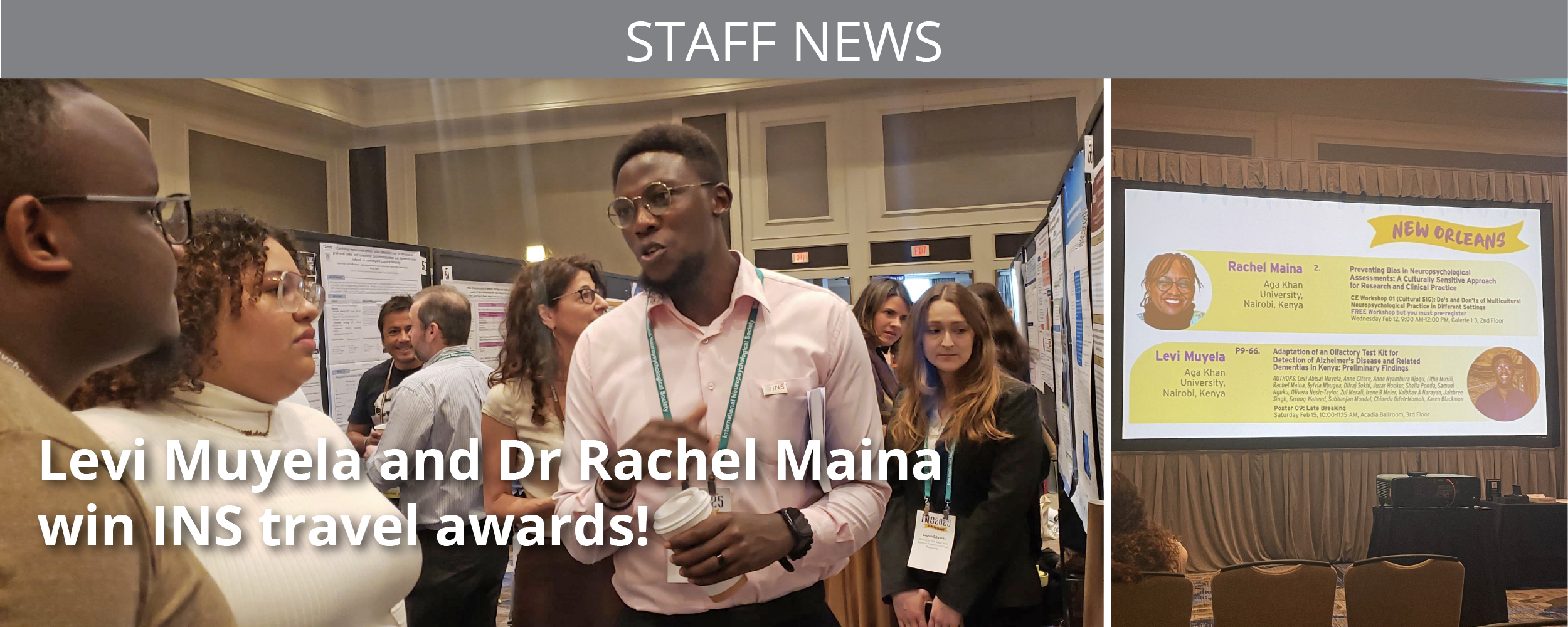
Levi Muyela and Dr. Rachel Maina were awarded the highly competitive INS Travel Awards to attend the International Neuropsychological Society (INS) Conference in New Orleans! Out of thousands of applicants, only four awards are granted, and two were claimed by BMI staff.
The INS Travel Award provides up to $1,500 USD to four students, trainees or early-career INS members from low- and middle-income countries.
Levi presented research on the adaptation of an olfactory test kit for detecting Alzheimer’s disease and related dementias in Kenya, using data from the ongoing AD-DETECT project. Their findings demonstrated that the ScentAware Olfactory Test has strong psychometric properties among Kenyan adults, effectively distinguishing between individuals with and without dementia.
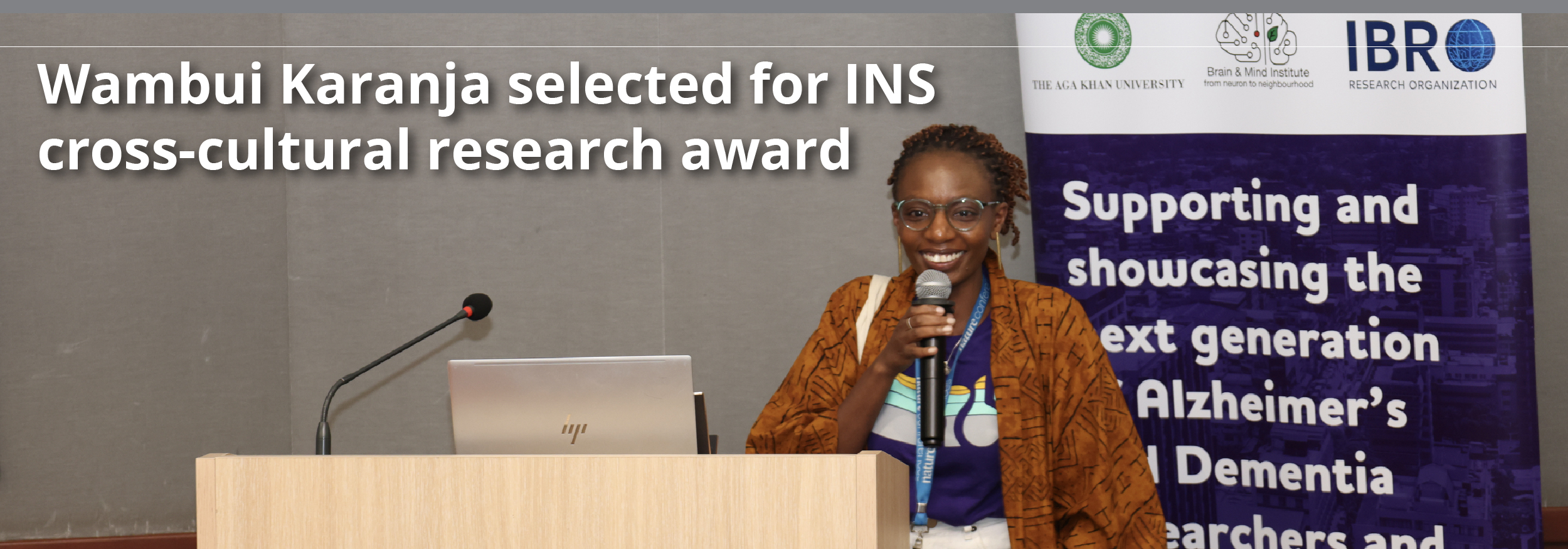
Wambui Karanja was selected by the INS(International Neuro-Psychological Society) cross-cultural special interest group for their award for best cross-cultural research. Her abstract titled ‘Kwa Ground Vitu ni Different: Relaxing Monolingual Constraints in Multilingual Settings’ was chosen from over 200 submissions for presentation at the conference.
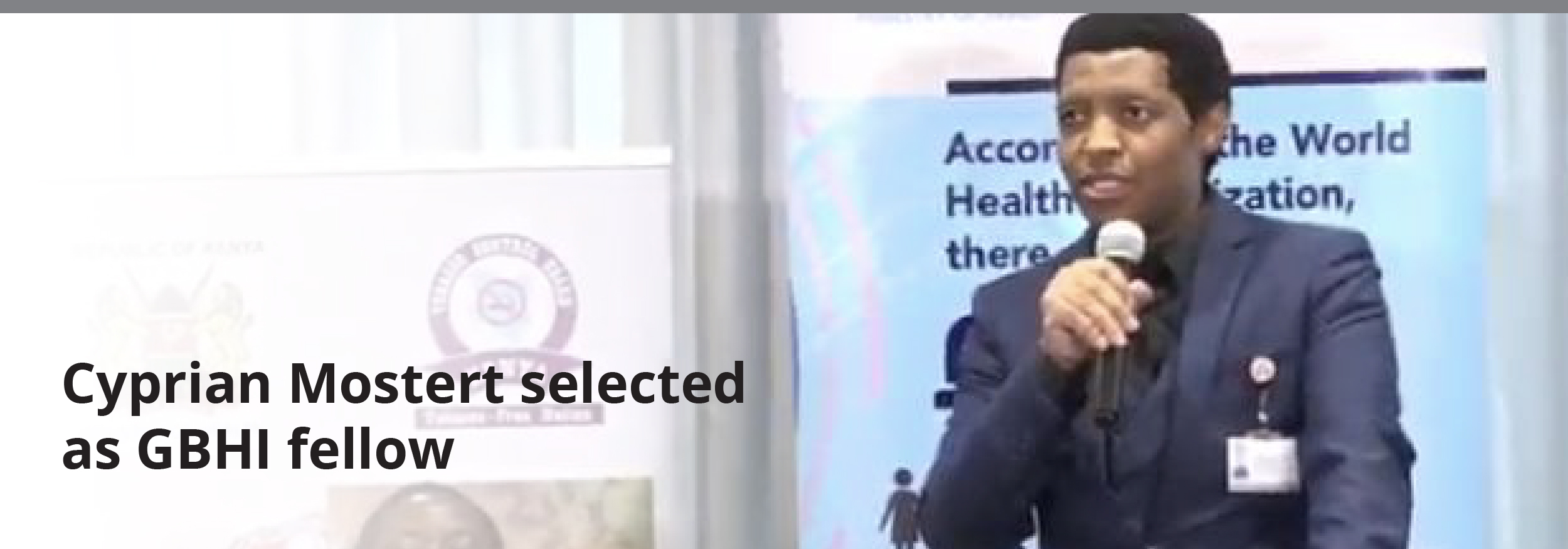 We are proud to announce that Cyprian Mostert, Assistant Professor of Global Health Economics, Department of Population Health and Lead Mental Health Economist at BMI, has been selected as a GlobalBrain Health Institute (GBHI) Fellow! GBHI Fellows are part of a global network of leaders committed to fostering a more equitable, healthier and inclusive world by advancing brain health and addressing social and economic inequities. We are proud to announce that Cyprian Mostert, Assistant Professor of Global Health Economics, Department of Population Health and Lead Mental Health Economist at BMI, has been selected as a GlobalBrain Health Institute (GBHI) Fellow! GBHI Fellows are part of a global network of leaders committed to fostering a more equitable, healthier and inclusive world by advancing brain health and addressing social and economic inequities.
This prestigious fellowship provides a platform to deepen their understanding of systemic inequities and take bold action against the forces that perpetuate power imbalances, discrimination and exclusion; driving meaningful change in brain health worldwide.
A huge congratulations to all on these well-deserved achievements!

|
